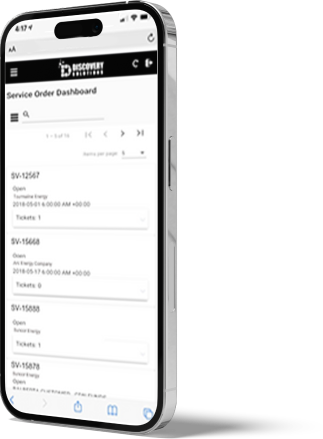5 OFS Tech Trends to Watch



The oilfield services sector has seen ups and downs in recent years. The US and Canada saw massive growth over the last decade which, according to a report from Research and Markets, led to increasing debt loads and frustrated investors, though the region maintains its big potential.
A brief on the report notes that the region hosts the largest OFS market in the world but that market is difficult to navigate successfully thanks to sharp swings in activity and prices along with technological changes. The US OFS market is particularly vulnerable to volatility, showing sharp drops in 2009, 2015-2016, and, of course, in 2020. In that year, demand for crude fell, further stressing an already stressed industry. Bankruptcies in oil and gas were rife and, with less to spend on outsourcing, the impact on oilfield services firms was big, leading Halliburton CEO, Jeff Miller, to call the year “the worst in our history.”
In 2020, the Economist asked the question, “Are oil-services companies doomed?” and answered itself with “Many of them are. But not all.”
The industry has rallied, of course, but if anyone has learned anything, it’s that the future is unpredictable. There will be upswings and downswings and possible massive disruptions. Those in the OFS sector who will outpace the competition in the coming years will be those taking advantage of all available resources and technological advancements to become leaner and more streamlined and optimize operations.
Technology will play a big role. These are the digital tech trends that smart leaders are adopting and that will make the difference.
1. Industry specific software (a true ERP)
For a while now, oilfield services companies have been making do with software that is not specifically designed with their business in mind.
You might be using Sage or QuickBooks and supplementing with spreadsheeting and pen and paper. But this is an archaic way of doing things that requires a lot of extra work and leaves all kinds of room for error and difficulties tracking inventory, people, and finances. This leaves money on the table and may be costing you in additional staff hired to manage these inefficient processes. Your business is complex. Companies that use a true ERP that was built with the oil field service industry in mind and takes care of the entire business from end to end, from accounting to operations, will be ahead of the competition. As the world moves towards increasing adoption of niche technological business solutions, it will soon be a cost of entry rather than a nice to have.

2. Digital ticketing
Are you still using paper and writing out manual tickets? This makes little sense in this day and age. Paper tickets can get lost and contain incomplete information. At the end of the year, these inefficiencies can add up to big costs for your company. Oilfield ticket software is a digital solution to capture your remote field activity and costs. Digital ticketing, like Discovery's Field Ticket System, allows field staff to enter the results of a job while in the field and produce a priced field ticket for the customer to sign, which can be done digitally. This streamlines operations, saves time, and reduces the potential for errors and lost tickets, reducing the cash conversion cycle and keeping activity flowing. The field ticket program also allows field staff to enter their hours which simplifies the payroll process and can be used when analyzing job cost history reports.
3. Offline capability

For workers in remote locations who need to enter required job data, offline capability is a must. Offline capability combined with a mobile app allows workers to fill and file tickets from anywhere, providing visibility into operations in real time and up-to-date data and information, which improves the decision making process. Mobile solutions like the Field Service Solution, Discovery OPS, allow for quick and timely logging of information on a phone or tablet, and easy sharing of that information. This is a big improvement over handwritten notes, which may not only be missing information but also harder to read. This also keeps you on top of equipment breakdowns or other onsite problems that can arise, facilitating faster solutions, and keeping productivity flowing.
4. Cloud-based solutions
Moving entire business operations into the cloud is an obvious choice as we move into 2023. Savvy leaders know this. If you’ve been using accounting software – even one that is not the ideal choice for your specific business – you know the benefits of accessibility you get in the cloud. Imagine having that for every aspect of your business, including ticketing, inventory and rentals, distribution, and manufacturing. Oilfield services companies that want to prevail in a future market driven by technology will need a cloud based ERP system that allows them to scale efficiently as they grow while keeping all of their data safe with industry best security. A cloud solution allows for easy logging, tracking, sharing, and analyzing information. It also allows workers to check their schedules and log information from anywhere and at any time. These things save time and resources, allowing people to focus on job specifics and business growth while automating menial tasks. It’s the companies that take advantage of these technologies that will outpace the competition in the foreseeable future and beyond.
5. Real-time data capture & monitoring
Real-time data capture is key to making the right decisions at the right time. A digital system that allows you to log and monitor data in real-time provides the ultimate visibility into your business, so you can analyze the data today and plan for tomorrow. This allows you to optimize your business operations and will be critical. With mobile access and a cloud solution, field service teams can log their usage inventory and hours in real-time so the dispatcher can always know what is available and what is out or needs to be restocked and make better real-time decisions. This applies to every area of your business, like creating work orders for manufacturing, where labor teams can log materials used, equipment usage, labor time, and more. Companies can then track costs and efficiencies and optimize manufacturing.
To learn more about why your company needs a True ERP, read: What is a True ERP?
Discovery Solutions is the only ERP built specifically for oilfield service companies. An easy-to-use, perfectly tailored software that matches the unique requirements of the industry, Discovery keeps companies on top of the latest technology trends.

Book a Call





